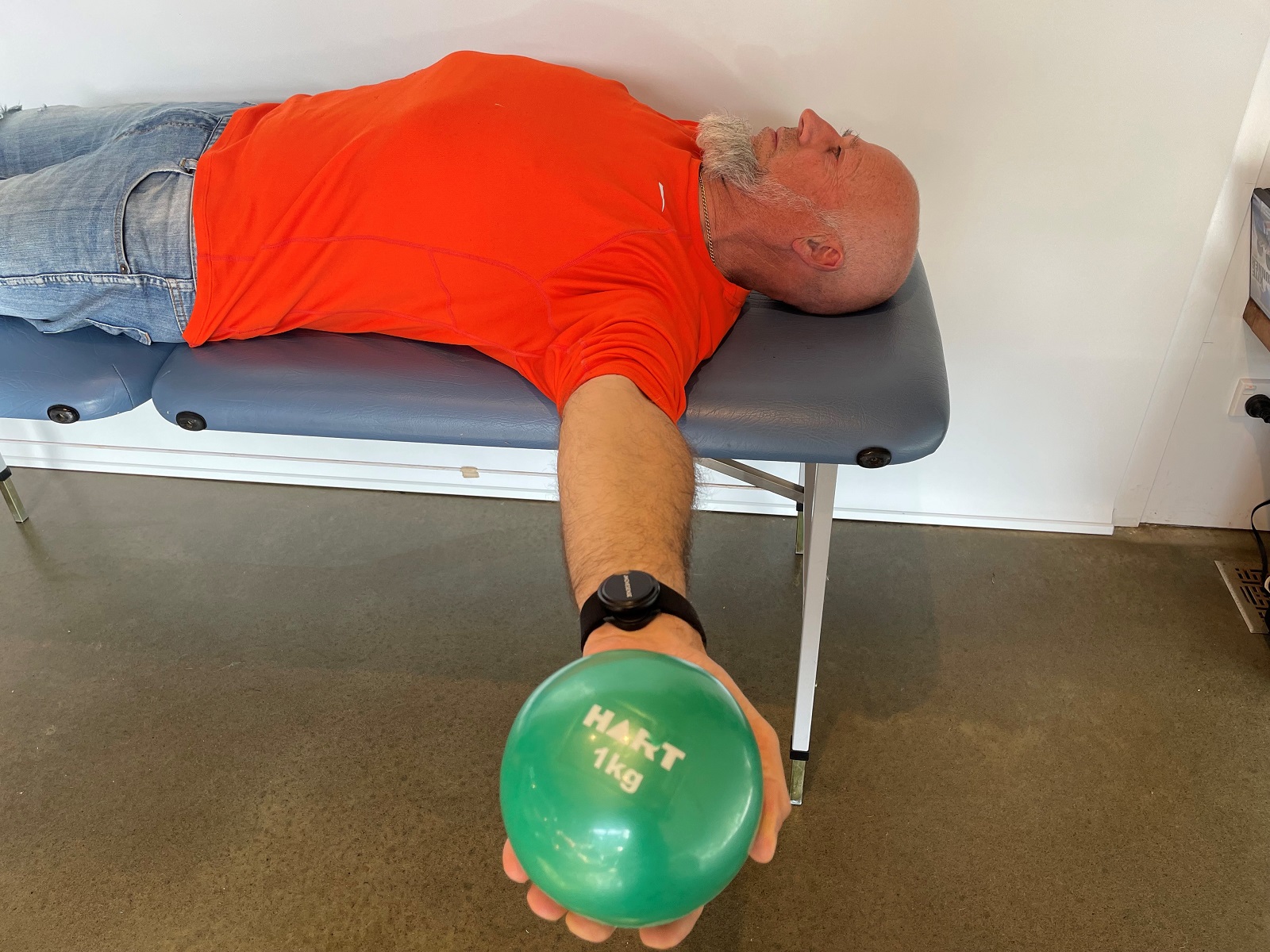Movesense Academic Program Expands with Two New Projects

Movesense Academic Program is an initiative by the Movesense team and Movesense development partner Kaasa Solution to support scientific research with expert tools for collecting movement, heart rate and ECG data. We are proud to invite two new projects to the program.
Both projects of this selection round are related to health. One of the projects aims to enable preventive cardiology in low-resource regions, while the other focuses on the rehabilitation of shoulder injuries.
Perturbation of the unstable shoulder
Flawless Motion, Auckland, New Zealand
The aim of this project led by Dr. Margie Olds is to measure angular displacement of affected and unaffected limbs in people with unilateral anterior shoulder instability to establish if they are ready to return to sport.
During the measurement, a Movesense sensor on the patient’s wrist measures the shoulder movement according to a specific test protocol (featured image). It is expected that those with slow muscle reaction times and inadequate strength after an episode of shoulder instability will have larger angular displacement. These people are not ready for return to sport, because they place themselves at higher risk of further injury than those with smaller angular displacement.
This work will greatly improve the identification of people who are ready to return to sport after a shoulder injury. The ability to measure distance traveled by a perturbated limb will allow a clinical measure of displacement, improve outcomes for people with shoulder instability and decrease rates of recurrent instability after a shoulder dislocation. It will also help to optimize the rehabilitation process and recovery monitoring.
Remote, real-time arrhythmia monitoring and screening
National Center of Artificial Intelligence, University of Engineering and Technology, Peshawar, Pakistan
A wide spectrum of clinical manifestations of cardiac rhythm disorders exist contributing towards substantial morbidity, mortality, and economic costs. The current COVID-19 pandemic is also contributing towards this increasing percentage as arrhythmias are reported to be a very common cardiac manifestation in patients with COVID-19 infection. Medical experts suggest continuous physiological monitoring, such as electrocardiogram (ECG) data, gathered over an extended period could assist in determining a proper course of action for cardiac care by the physician.
In a developing country like Pakistan, with a population of 220 million, approximately 70% of whom live in rural areas, screening and monitoring facilities are scarce. The conventional screening process in major cities sometimes involves devices like, a Holter monitor prescribed to a patient for recording ECG for a fixed period (typically 24 hours) and manual record-keeping of symptoms of unusual activity.
These monitors are not available in small cities or rural areas of the country. Furthermore, there are some functional limitations of these devices that include no real-time signal visualization and screening/diagnosis, and no alert mechanism for the user or healthcare provider, and the device generally records data for maximum of one day.
The mission of this project, coordinated by Dr. Muhammad Salman Khan, is to enable preventive cardiology in low-resource regions. The complete solution is a real-time ECG-based monitoring and screening system comprising wearable Movesense sensor-based hardware, smartphone application, and Cloud platform with integrated artificial intelligence-based decision support system (DSS).
Movesense sensors will be used to acquire clinical ECG data for the integrated solution and AI-enabled decision support system development. The data generated will provide researchers and healthcare providers high quality information on the local burden and trajectory of arrhythmias enabling them to devise strategies for prevention and control.
One of the main objectives and outcomes of this study will be the AI-enabled DSS capable of detecting four most common classes of arrhythmias (Atrial fibrillation, Atrial Flutter, Bradycardia and Tachycardia). This AI-based diagnostic tool will eventually be used in early-stage screening of targeted population groups.
Views: 52
